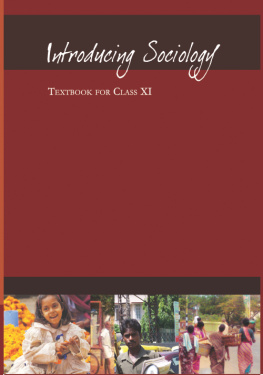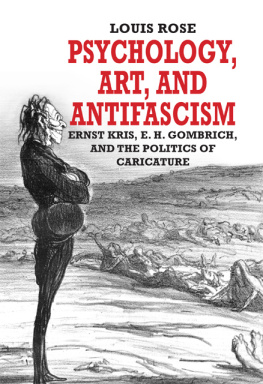First published 2008 by Transaction Publishers
Published 2017 by Routledge
2 Park Square, Milton Park, Abingdon, Oxon OX14 4RN
711 Third Avenue, New York, NY 10017, USA
Routledge is an imprint of the Taylor & Francis Group, an informa business
Copyright 2008 by Taylor & Francis
All rights reserved. No part of this book may be reprinted or reproduced or utilised in any form or by any electronic, mechanical, or other means, now known or hereafter invented, including photocopying and recording, or in any information storage or retrieval system, without permission in writing from the publishers.
Notice:
Product or corporate names may be trademarks or registered trademarks, and are used only for identification and explanation without intent to infringe.
Library of Congress Catalog Number: 2007047070
Library of Congress Cataloging-in-Publication Data
Germani, Ana Alejandra. [Gino Germani. English]
Antifascism and sociology: Gino Germani (1911-1979) /Ana Alejandra
Germani.
p. cm.
Includes bibliographical references.
ISBN 978-1-4128-0681-7
1. Germani, Gino. 2. SociologistsArgentinaBiography. 3. SociologyArgentina. I. Title.
HM479.G47G47 2008
301.092dc22
2007047070
ISBN 13: 978-1-4128-0681-7 (hbk)
Gino Germani (19111979) was considered by many as the founding father of scientific sociology, as well as the outstanding symbol of the emergence of empirical sociology in Latin America in the two decades following World War Two (Kahl, 1981). He was recognized by some on the Italian peninsula as one of the most important political sociologists, ranking with Vilfredo Pareto and Gaetano Mosca. His pioneer studies on Latin American social and political development, on the breakdowns of democracy, and the rise of authoritarian regimes have become classics in the social sciences. His contributions to the sociology of modernization are relevant today in understanding the strains and contradictions facing Western democracies in a glob alized world, anticipating in many respects todays discussions on so-called post-modern societies.
For much of his life, Germani lived abroad, making a substantial contribution to the international prestige of Italian culture, especially in Latin America. It is a legacy that has remained unknown in his homeland.
The original project, initially sponsored by the University of Buenos Aires, was limited to Gino Germanis exile in Argentina and specifically to his efforts in institutional building in social sciences. Without doubt, Argentina was the country where he left the most profound legacy. Together with Jose Luis Romero, Risieri Frondizi, Jose Babini, Manuel Sadosky, Jorge Graciarena, and several other renowned scholars, he played a key role in social sciences of the region, promoting the development of strong institutional connections with North American and European social sciences, For the inauguration of the fiftieth celebration of the founding of the Department of Sociology of the University of Buenos Aires, the Senate of Argentina paid homage to the Italian antifascist, calling him the father of Argentine sociology.3
This biography is intended to highlight the interplay of personal life history, scientific interests, and social analysis. A particular emphasis is given to the ways in which Germanis own experience of political authoritarianism, in both Italy and Argentina, shaped his research interests, theoretical works, institutional and intellectual endeavours.
The book is based on intensive research of both oral and written sources. The materials found in Germanis personal archive an extraordinary collection of notes, courses, public conferences, institutional correspondence, personal letters, unedited works and research projectswere systematically put forward for examination by peers, colleagues, students, friends as well as enemies, whom he had encountered at various stages of his life. Interviews were held with acquaintances from antifascist circles and from the student movement of the University of Buenos Aires (1930s to 1940s), with his outstanding colleagues from the publishing houses Abril and Paids, and with other exceptional intellectual dissidents who took refuge at the Colegio Libre de Estudios Superiores during the Peronist years, as well as with colleagues and students who formed part of the so-called golden decade of Argentine social sciences and, last but not least, scholars, and acquaintances in the United States and Italy.
Although a number of other archives were consulted, the project was originally set out to make the most of his personal archive, notwithstanding possible risks of bias emerging from using a single source. The choice was warranted however by the wealth of the materials found. Germani was an exceptional letter writer. He obsessively and painstakingly preserved all of his correspondence, documents and personal files. These letters and documents, in fact, were an important part of a common task he set for himselfthat of institutional building and networking in social sciences. The materials he left in his personal archives all bear witness to the different facets of this complex endeavour: disseminating research work, recommending students, exchanging materials with other scholars, and so forth.
As is evident, the archive facilitated immensely the writing of the biography itself; through these materials it was indeed possible to trace a day-to-day chronology of Germanis life story; many names of important witnesses, in particular those from the late 1930s and 1940s, were found in these documents. Ultimately, the materials themselves enabled the interviewee to evoke more vividly specific events; situations that had inexorably disappeared in time and space. Personal recollections certainly encapsulate many risks of mystification and partiality. During the course of the interviews, many of Germanis furious adversaries and foes recalled the maestro not only with respect butdare I sayaffection, playing down their long years of conflict and opposition to Germanis project, which was undeniably an important polemical chapter in Argentine social sciences.
However a complex portrait from these multifaceted sources emerged of a somewhat estranged, cosmopolitan intellectual, who could be sarcastic and short-tempered as well profoundly committed to understanding the contradictions of modernity and the possibilities for democracy in contemporary society. His obsession with creating a rigorous scientific social science far from rhetoric and ideology was tied strongly to his fears of authoritarianism and totalitarianism, the raw materials of his own sociological vocation.
The story inevitably begins in fascist Italy, in the Roman jail of Regina Coeli and on the island of Ponza where Germani began to note down his initial observations on the origins of fascism and the crisis of democracy, reflections he developed further as an exile in Argentina during the first conferences he gave to a group of antifascist dissidents who regularly met in Buenos Aires, as well as in his studies at the Faculty of Philosophy and Letters of Buenos Aires. After his short-lived career at the Institute of Sociology of that faculty, with the advent of Peronism, he took refuge with other renowned intellectuals at the












